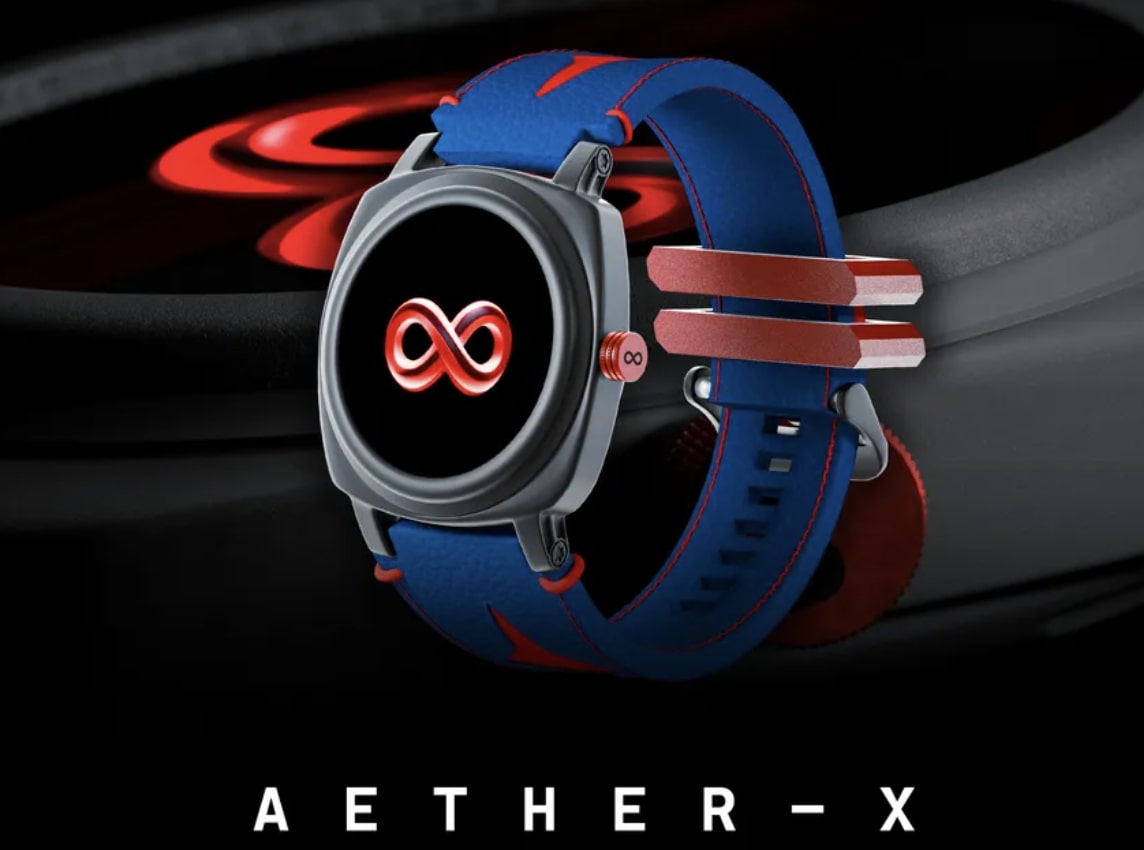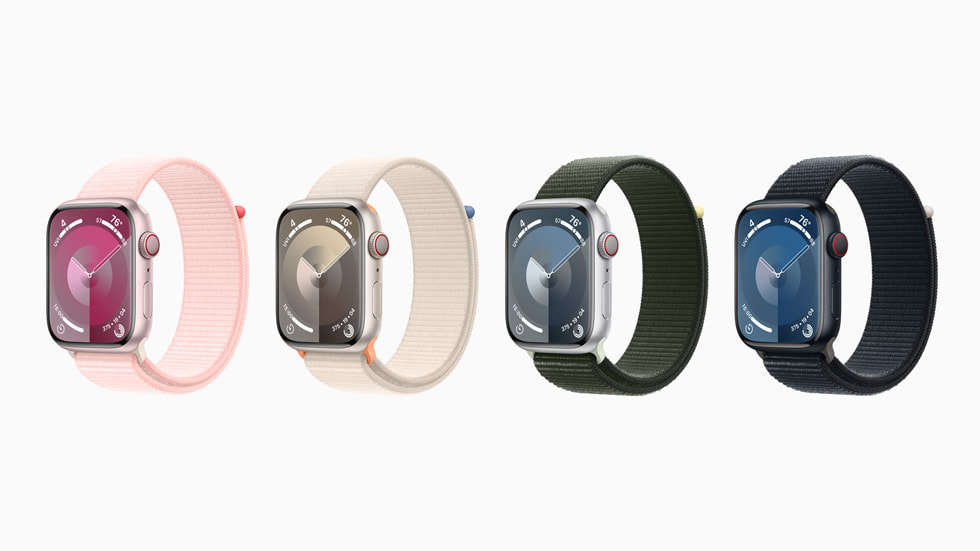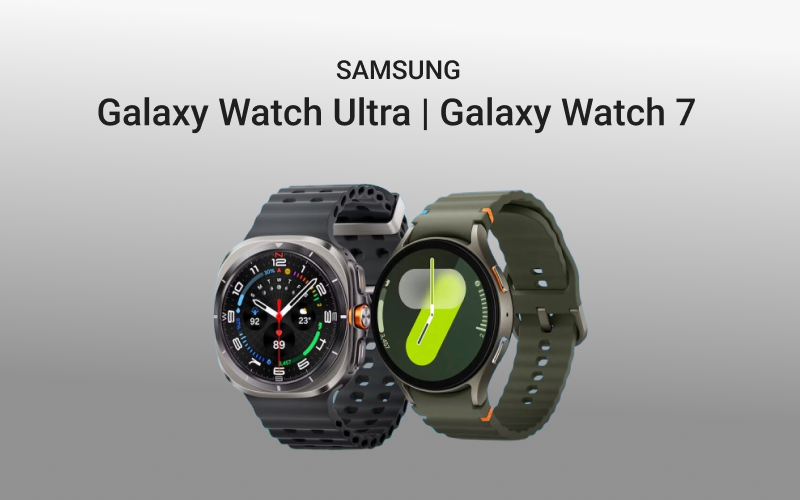When it comes to smartwatches, the competition between tech giants is fierce, but today we’re looking at two contenders that have captured the attention of enthusiasts—the Galaxy Watch 7 and the Galaxy Watch Ultra.
Whether you're a fitness buff, a tech lover, or someone looking for the best deal, this comparison will help you decide which one suits your needs.
Table of Contents
Galaxy Watch 7 vs. Ultra: The Verdict
Here’s the breakdown, sorted by what matters most to different users:
Best by Price: Galaxy Watch 7
If your main priority is getting the best bang for your buck, the Galaxy Watch 7 takes the crown. It offers many of the same functionalities as the Ultra, like fitness tracking and notifications, but at a much more affordable price point. Perfect for budget-conscious buyers who want a solid, all-around smartwatch.
Overall Best: Galaxy Watch Ultra
The Galaxy Watch Ultra is the more premium option, with higher-end features that justify the steeper price tag. From its rugged design to its superior battery life, the Ultra is built for those who want the top-tier smartwatch experience, especially if durability and advanced fitness metrics are essential to you.
Best for Health Monitoring: Galaxy Watch 7
Both watches offer comprehensive health tracking, including heart rate monitoring, sleep tracking, and ECG functionality. But for straightforward, daily health monitoring without the need for excessive extras, the Galaxy Watch 7 is more than enough. It’s sleek, effective, and handles your health data with ease.
Best for Adventure Seekers: Galaxy Watch Ultra
Heading on a rugged hike or an intense outdoor adventure? The Ultra is designed to withstand tougher conditions. It’s water-resistant up to greater depths, has military-grade durability, and the longer battery life ensures it won’t die on you in the middle of an expedition. If your life involves extreme activities, this is the watch for you.
Galaxy Watch 7 vs. Ultra: Detailed Comparison
Now let’s break down the differences between the Galaxy Watch 7 and the Galaxy Watch Ultra in depth, analyzing the key aspects from design and durability to features and performance.
1. Design and Build Quality
The design of a smartwatch can make or break your decision, especially if you plan to wear it daily. Let’s see how the Galaxy Watch 7 and Ultra stack up in terms of aesthetics, comfort, and durability.
- Galaxy Watch 7: The Galaxy Watch 7 has a sleek, modern look that fits in well with both casual and professional settings. Its slim profile and lightweight design make it comfortable for all-day wear, even if you’re sleeping or exercising. The watch case is made from aluminum, keeping it lightweight yet durable, and it comes in multiple color options, including silver, black, and rose gold. This gives users a chance to pick a style that suits their preferences.
While the aluminum body is scratch-resistant, it’s not as rugged as the Ultra’s titanium build. However, for everyday use, it’s more than adequate, especially if you’re not subjecting it to harsh outdoor conditions. It's also thinner, which means it slides more easily under cuffs or stays out of the way during physical activities. - Galaxy Watch Ultra: Built like a rugged adventurer’s tool, the Ultra is designed for durability. The body is made of aerospace-grade titanium, providing a much tougher shell compared to the Watch 7. This is further reinforced with sapphire crystal glass, which is nearly scratch-proof and can withstand harder knocks. The watch is designed to take a beating, making it ideal for outdoor enthusiasts or those who work in challenging environments.
However, this strength comes at the cost of weight and size. The Galaxy Watch Ultra is significantly bulkier, and some users might find it too hefty for casual or everyday use. It’s great for hiking or extreme sports, but less so for someone who values a lighter, more discreet wearable. That being said, the Ultra’s imposing design might be an attraction in itself if you like your gear to feel indestructible.
2. Battery Life
Battery life is one of the most important factors to consider in a smartwatch, especially if you're always on the go or use many of its power-draining features.
- Galaxy Watch 7: The Watch 7 offers up to 2 days of battery life on a single charge with regular use, including occasional GPS tracking, notifications, and health monitoring. This is more than enough for most people’s daily routines—whether you’re working out, receiving notifications, or monitoring your sleep at night. However, heavy users, especially those who frequently use GPS and fitness tracking, may need to charge it more often.
The charging itself is pretty fast, and you can get back to 100% in just over an hour, which is a plus if you're in a hurry. Still, if you're planning a multi-day trip without access to a charger, this might not be the most reliable option. - Galaxy Watch Ultra: The Ultra comes with a massive 4-day battery life, which is nearly double that of the Watch 7. This is perfect for those who are always outdoors or forget to charge their devices regularly. The extra battery life really shines when using intensive features like dual-frequency GPS or constant heart-rate monitoring during workouts.
For anyone who’s traveling or camping, the long-lasting battery makes a huge difference, especially when you’re far from a charging port. It also has a quick charge feature, so you can top it up relatively quickly before a long hike or a workout session.
3. Fitness and Health Features
Both watches offer comprehensive health tracking, but there are some notable differences in terms of advanced metrics and the types of users they cater to.
- Galaxy Watch 7: The Watch 7 offers a broad range of health and fitness features aimed at everyday users. You’ll get the usual suspects like heart rate monitoring, SpO2 (blood oxygen level) tracking, ECG readings, and sleep analysis. It also has automatic workout detection for popular activities like running, cycling, and swimming. These features are robust, reliable, and well-suited for those looking to maintain a healthy lifestyle without diving into the extreme fitness territory.
For most people, the fitness tracking on the Watch 7 will be more than enough, whether you’re hitting the gym a few times a week or keeping tabs on your heart health. It also has Samsung Health integration, where you can track your data over time and set personal health goals. - Galaxy Watch Ultra: The Ultra is designed for more serious athletes and outdoor adventurers. It comes equipped with advanced metrics like VO2 Max, which measures the maximum oxygen uptake during intense exercise, and dual-frequency GPS for more accurate navigation in areas where typical GPS may struggle, like dense forests or urban canyons.
There are more specialized sports modes, including advanced running dynamics (like stride length and ground contact time), which can help athletes fine-tune their performance. The Ultra’s health features are similarly extensive, but they’re paired with more performance-based insights, making it ideal for marathon runners, triathletes, and outdoor adventurers.
4. Display Quality
The display is another critical component, especially for a device that’s on your wrist all day. Both watches feature Samsung’s brilliant AMOLED technology, but there are some differences to note.
- Galaxy Watch 7: The Watch 7 comes with a 1.4-inch AMOLED display, which is bright, sharp, and easy to read, even in direct sunlight. The display resolution is high enough that everything looks crisp, whether you're reading notifications or checking your heart rate. The always-on feature is handy for quickly glancing at the time or your fitness stats without having to raise your wrist.
It’s protected by Gorilla Glass DX, which is scratch-resistant and should hold up to most daily wear and tear. It’s not as tough as the sapphire glass on the Ultra, but it’s more than sufficient for standard usage. - Galaxy Watch Ultra: The Ultra ups the ante with a 2-inch AMOLED display, offering more screen real estate for those who love having all their data visible at once. The larger size isn’t just about aesthetics—it's useful for detailed maps, longer notifications, and more extensive health metrics during workouts. The Ultra’s display is also much brighter, maxing out at 2000 nits, meaning you can clearly see the screen even in harsh sunlight.
The Ultra’s screen is also encased in sapphire crystal, making it nearly scratch-proof and much tougher than the glass on the Watch 7. This durability will appeal to those who use their smartwatch in more rugged or outdoor environments.
5. Software and Performance
Both watches are powered by Samsung's Wear OS and come with access to a wide range of apps through the Google Play Store. Performance is smooth on both models, but the Ultra does have a slight edge in terms of speed and capability.
- Galaxy Watch 7: Equipped with Samsung’s Exynos W920 processor, the Galaxy Watch 7 performs smoothly in most scenarios. Whether you're running multiple apps, tracking your workouts, or responding to notifications, the performance holds up without any noticeable lag. However, it doesn't have the same level of processing power or efficiency as the Ultra, which can be noticeable when running more intensive tasks, like advanced health metrics or third-party apps.
- Galaxy Watch Ultra: The Ultra, with its more powerful chipset and additional RAM, is built for speed and heavy use. The hardware ensures faster processing times, quicker access to apps, and smoother transitions between tasks. If you’re someone who multitasks a lot on your smartwatch, or if you regularly use third-party apps and features like GPS, you’ll appreciate the extra horsepower the Ultra brings. It’s a noticeable upgrade, particularly for power users who push their devices to the limit.
In conclusion, while both the Galaxy Watch 7 and Ultra run on the same platform, the Ultra is just that bit more future-proof, especially if you're planning on using more advanced features down the road.
3 Alternatives to Galaxy Watch 7 and Ultra That Might Fit Your Needs
If neither the Galaxy Watch 7 nor the Ultra feels like the perfect fit for you, here are some excellent alternatives to consider:
Aether X

If style and functionality are what you crave, the Aether X might be your match. This smartwatch blends cutting-edge technology with sleek, fashion-forward design. It’s perfect for those who want a statement piece on their wrist while keeping up with fitness and health monitoring.
Garmin Forerunner 955

Known for its unbeatable GPS tracking, the Garmin Forerunner 955 is ideal for serious athletes and runners. It’s packed with performance metrics, VO2 max estimates, and even weather alerts. If you're into endurance sports, this is a great choice.
Apple Watch Series 9

The Apple Watch Series 9 remains a top contender for anyone in the Apple ecosystem. With seamless integration, advanced health metrics, and a refined user experience, it's a fantastic option for iPhone users who want an all-in-one device.
Conclusion
So, which watch is right for you? It depends on your lifestyle and priorities. If you want a reliable, affordable smartwatch for everyday use, the Galaxy Watch 7 is your best bet. However, if you need a watch that can handle rugged conditions and offers extended features, the Galaxy Watch Ultra will not disappoint. And if neither feels like the right fit, there are plenty of alternatives out there—whether you’re after luxury, advanced tracking, or seamless tech integration.
Ultimately, both Galaxy watches offer great value, but your decision should align with what matters most to you, whether it's price, performance, or style.



